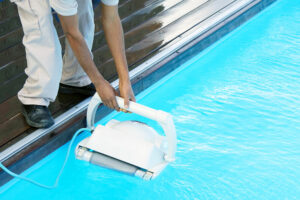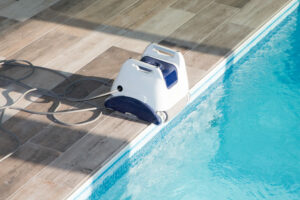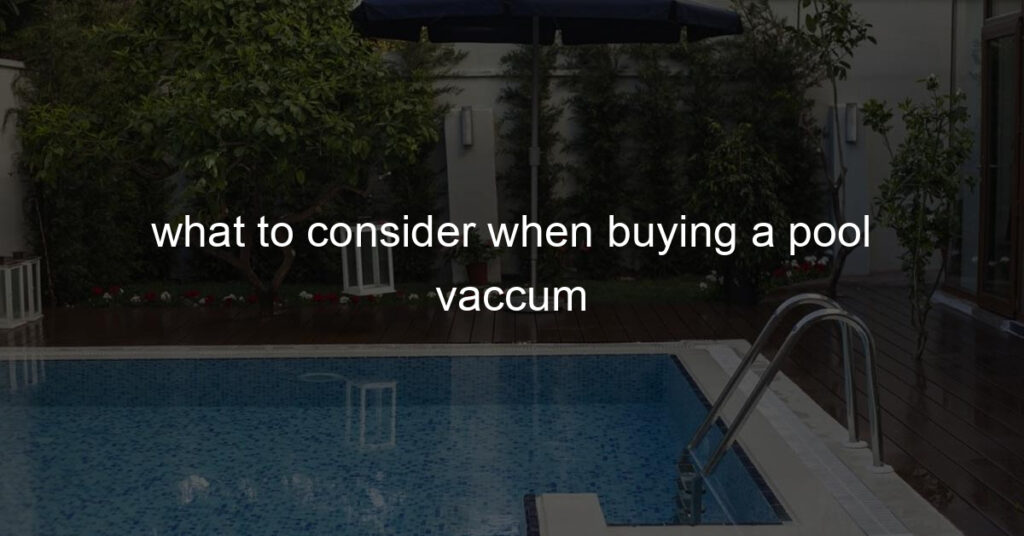What To Consider When Buying a Pool Vacuum?
Are you thinking about buying a pool vacuum? If so, you’ve landed on the right page. This post will guide you through all the important factors you need to consider before making a purchase.
From understanding the different types of pool vacuums to considering your pool’s size and surface type, we’ll walk you through it all. We’ll also talk about the importance of energy efficiency and the differences between manual and automatic vacuums.
Plus, we’ll delve into the cleaning and maintenance requirements, important features, and durability of pool vacuums.
We’ll weigh the costs and take a look at how customer reviews and brand reputation can influence your decision. So, let’s dive in and find the perfect pool vacuum for you!
Understanding the Types of Pool Vacuums
There are primarily three types of pool vacuums – suction-side, pressure-side, and robotic. Suction-side pool vacuums attach to the suction side of your pool’s plumbing, and they’re often powered by the pool’s existing pump, making them efficient and cost-effective.
Pressure-side vacuums use the water returned to your pool after it has been filtered to power the vacuum. These vacuums are effective at picking up larger debris and often have their collection bag, reducing the load on your pool’s filter. Robotic vacuums are the most advanced type and operate independently of your pool’s system.
They offer superior cleaning capabilities and user-friendly features but come at a higher price point.
Evaluating the Size and Depth of Your Pool
The size and depth of your pool play a critical role in choosing the right pool vacuum. If your pool is large and deep, you would require a vacuum with a long hose and high suction power to reach and clean all areas efficiently.
Conversely, a small, above-ground pool might not require such a powerful vacuum. Understanding your pool’s dimensions and layout will help you choose a vacuum that can clean your pool effectively.
Considering Your Pool Surface Type

The material of your pool’s surface is another important consideration when buying a pool vacuum. Pools can be made from various materials, including vinyl, fiberglass, or concrete. Each material type has its specific requirements for cleaning and maintenance.
For instance, concrete pools may need a vacuum with a strong brush to scrub off algae and other debris, while a vinyl pool would need a softer brush to prevent damage to the lining.
The Importance of Energy Efficiency in Pool Vacuums
Energy efficiency is an important factor to consider when purchasing a pool vacuum. The more energy-efficient the vacuum, the less it will cost you to run it. This is especially true for automatic or robotic pool vacuums that might be running several hours a day.
Look for models that are rated for their energy efficiency and consider the energy consumption against the cleaning efficiency it offers.
Manual Vs. Automatic Pool Vacuums: What’s Right for You?
Manual pool vacuums are usually less expensive and offer a greater degree of control during cleaning. However, they require more time and effort to operate. Automatic pool vacuums, on the other hand, can clean your pool without your constant supervision. They are divided into suction-side, pressure-side, and robotic vacuums, each having its pros and cons. The best choice between manual and automatic would depend on your budget, time, and how hands-on you want to be with the cleaning process.
Assessing the Cleaning and Maintenance Requirements of Pool Vacuums
Like all devices, pool vacuums require regular cleaning and maintenance to ensure their longevity and optimal performance. Some models might have easy-to-clean filters and simple maintenance requirements, while others may have complex mechanisms that require professional servicing.
Ensure you understand the cleaning and maintenance needs of the pool vacuum you’re considering and assess whether it’s something you’re willing and able to handle.
Comparing Features: Suction Power, Brushes, and Filters

Different pool vacuums come with varying suction powers, brush types, and filtration systems. Suction power determines how effectively the vacuum can pick up debris and dirt. The type of brush impacts how well it can scrub your pool’s surface, and the filter system determines the cleanliness and clarity of your pool water post-vacuuming.
Comparing these features across various models can help you find the one best suited to your pool’s needs.
Exploring User-Friendly Features: Cord Length, Hose Quality, and Portability
Convenience and ease of use should not be overlooked when selecting a pool vacuum. The length of the cord or hose should be sufficient to reach all parts of your pool. The quality of the hose is also important as it affects the durability and the vacuum’s overall performance.
Other factors like weight, portability, and whether the vacuum has features like automatic shut-off, programmable cleaning cycles, or remote control also contribute to user experience and should be considered.
Investigating Durability and Longevity of Pool Vacuums

Pool vacuums are a significant investment, so durability and longevity are crucial. High-quality pool vacuums are typically made from durable materials that can withstand exposure to pool chemicals and sun.
Look for vacuums with sturdy construction and high-quality components. It’s also advisable to check the manufacturer’s warranty and after-sales service, which can be indicative of the product’s expected lifespan.
Weighing the Cost: Initial Investment Vs. Long-Term Maintenance
While the initial cost of the pool vacuum is an obvious factor to consider, it’s equally important to evaluate the long-term cost. This includes the cost of energy consumption, replacement parts, maintenance, and repair.
For instance, a cheaper vacuum could end up costing more in the long run if it’s energy-inefficient or requires frequent part replacements. Understanding these costs will give you a clearer picture of the total cost of ownership.
The Role of Customer Reviews and Brand Reputation in Choosing a Pool Vacuum
Lastly, customer reviews and brand reputation can provide valuable insights when choosing a pool vacuum. Reviews can give you a real-world perspective on the vacuum’s performance, ease of use, durability, and customer service quality.
Additionally, the reputation of the brand can often signal the quality and reliability of its products. Brands with a long-standing positive reputation are often a safe choice, and their products are likely to come with good customer support.

Conclusion,
Buying a pool vacuum isn’t a decision to be taken lightly. It requires a careful analysis of various factors.
From the type of vacuum to the size of your pool, many aspects need to be considered. The surface material of your pool also plays a key role in your decision. Energy efficiency is another factor that can’t be ignored, as it directly impacts the long-term cost of the vacuum.
The debate between manual and automatic pool vacuums revolves around personal preference, budget, and time constraints.
Maintenance requirements, suction power, brush types, and filter systems all contribute to the overall performance and usability of the vacuum. The vacuum’s durability, longevity, and cost are critical to ensuring you make a worthwhile investment.
Lastly, don’t underestimate the power of customer reviews and the reputation of the brand. All these elements together will guide you in making the best choice for your pool cleaning needs.
Remember, a well-informed decision is always a wise decision.














